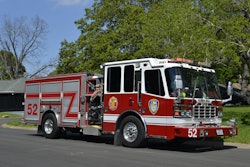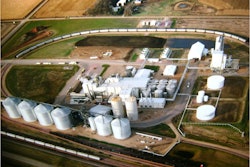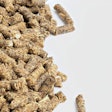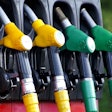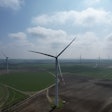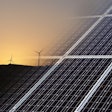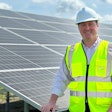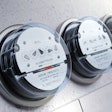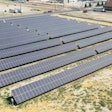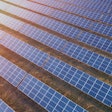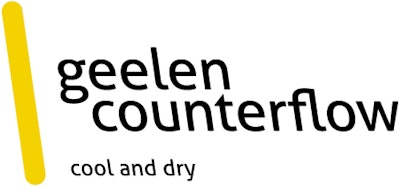
In the second half of 2020 the Geelen Counterflow maintenance team was busy coordinating the installation of a warm water circuit throughout the Geelen Counterflow factory to enable two industrial air/water heat pumps to take over factory heating from 15 gas burners.
As part of its “100% sustainable” strategy, since the start of 2021 Geelen is no longer using natural gas for heating and therefore no longer emitting CO2 or NOx to keep its 8 factory halls warm.
By switching from natural gas to renewable electricity for factory heating, Geelen Counterflow is all but eliminating its Scope 1 emissions (direct use of fossil fuels) which is an important step towards its commitment to Science Based Targets for a maximum of 1,5C global warming.
Switching to very efficient air/water heat pumps allows Geelen to use the free energy contained in the outside air for all but the coldest winter days. This means that energy consumption for heating can be reduced by 73% and that the remaining energy consumption is now renewable electricity only.
The electricity required for the heat pumps is supplied on an annual basis by additional solar panels. The new total of 3403 panels with an installed capacity of 1 MWp will generate enough electricity per year to cover all consumption for laser cutting and bending of stainless steel, welding, forklifts, lights, computers, office air conditioning and factory heating.
Even though Geelen Counterflow is close to electricity balance on an annual basis (Scope 2), the company is developing options to reduce the electricity it sells back to the grid in the weekends and on long sunny days and also to reduce the renewable electricity it has to buy from the local renewable energy coop on dark days. Storage in the batteries of its electric company cars and forklift trucks can still be optimized. The payback time of big industrial batteries is now being investigated.
Heat pumps can also provide cooling in high summer when factory temperatures can be very uncomfortable. Due to climate change, the last 7 years have been the 7 hottest years in recorded history and there’s more to come. Climate mitigation is top priority, but climate adaptation is inevitable. In the hottest weeks of the year, the cooling capacity of the heat pumps will make working in the factory a lot more comfortable, keeping productivity high.
The main challenge for the Science Based Targets now is to also reduce Scope 3 emissions, in other words the fossil fuels used by dryers that Geelen sells to its customers. During the next year the first three dryers with electric heat pumps will be started up in South Korea, China and Norway.
The associated energy and CO2 impacts are many times bigger than what Geelen has achieved back home.
"The principles are the same, whether we optimize our office and factory or we optimize our customer’s drying process," says Managing Director Sander Geelen. "First optimize energy efficiency, then apply sustainable energy sources. How could we possibly ask our customers to trust our proposals without first setting the example?”
Inventor of the Counterflow Cooler and Counterflow Dryer, Geelen Counterflow strives to eliminate the negative environmental impacts from our operations and from our customer's drying and cooling processes.



